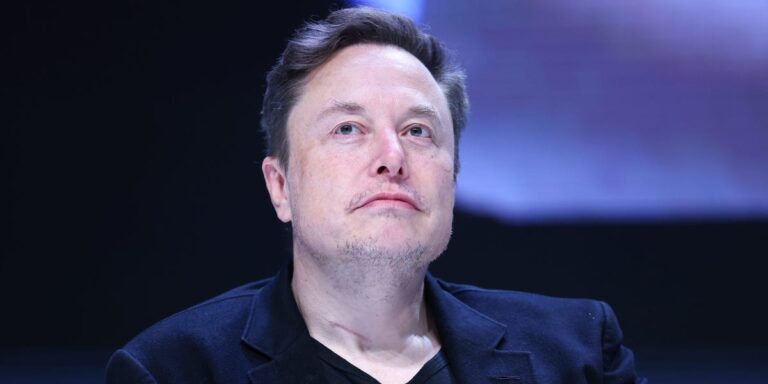- Elon Musk’s SpaceX is at odds with environmental activists over its Starbase in Boca Chica, Texas.
- Rocket launches disrupt local ecosystems, including migratory bird habitats.
- The New York Times reported that SpaceX “exploited the limits” of government agencies to expand its business.
SpaceX has been courting controversy at its South Texas complex.
The New York Times reported Sunday that Boca Chica’s Starbase operations, which include rocket launch pads and production facilities, are damaging the local environment.
The media outlet reported that SpaceX operations have had problems including explosions, fires and leaks at least 19 times since 2019. A rocket launch in 2023 caused an explosion that burned 3.5 acres at a nearby state park.
The most recent incident occurred in June during the launch of Starship, which flew to space and returned.
The flight was deemed a success, but left a trail of egg yolk on the ground near the launch site.
The complex is adjacent to public lands such as Boca Chica State Park, and the area is close to migratory bird habitat. A passageway for birds such as the piping prober, a species listed as “threatened” by the U.S. Fish and Wildlife Service.
The nonprofit documented nine bird nests in the area before the June launch, but none remained intact.
“All nine shorebird nests monitored after the June 6 rocket launch had either lost eggs, damaged eggs, or both,” the 2024 Coastal Bend Bay and Estuary Program Report states.
“This damage, in our experience, is not the result of contact with a predator,” the report added. “Furthermore, the high speed and force of the flying debris and wet sand and mud was clearly evident not only in the photographs from the hunting cameras, but also on the surfaces of the cameras themselves, one of which had its lens shattered by a concrete pebble.”
The launch sent debris flying onto nearby land, sparking small fires, including metal sheets and insulation.
The company’s environmental practices have caused friction with government agencies such as the National Park Service and the U.S. Fish and Wildlife Service.
But the Federal Aviation Administration defended SpaceX in a statement to The Times.
“It’s not our directive to blow debris into state parks or state land, but at the end of the day, nobody was hurt, nobody was injured,” the official said. “We don’t want people to feel like they’ve been crushed by a bulldozer. But the work that SpaceX is doing there is very important. It’s very important to our civil space program.”
Gary Henry, a former SpaceX adviser on the Pentagon’s launch program, told the outlet that SpaceX is aware of the criticism about its environmental practices and has plans to address them.
The outlet reported that SpaceX hired consultants to track the birds’ behavioral patterns, but the researchers “found little to no evidence” of changes in local bird populations.
But environmental officials have further complaints about SpaceX.
The Times reported that SpaceX CEO Elon Musk could have “exploited various agencies’ constraints and competing missions” to impose unfavorable regulations. The National Park Service and the U.S. Fish and Wildlife Service, which oversee natural and other resources, have “repeatedly” lost out to larger agencies like the Federal Aviation Administration.
The outlet also reported that Musk had expanded SpaceX’s operations beyond what he had initially promised to officials, and that former National Park Service official Mark Spiers said SpaceX had “misled” officials.
“They kept saying, ‘No, we’re not going to do that, we’re not going to do that,’ and then they came back and said, ‘Yes, we will,'” he said. “We were being lied to.”
Attention continues to grow on SpaceX and its impact on the local environment: In June, NASA confirmed that a large piece of debris the size of a car hood had crashed into North Carolina from a SpaceX Dragon capsule.
Representatives for SpaceX, the FAA, and the US Fish and Wildlife Service did not respond to Business Insider’s requests for comment.

